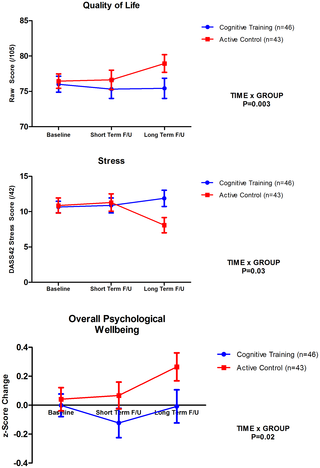
When a company thinks of a new recruit, there are a lot of things to be considered. A certain job profile needs certain requirements and the organization has to select the right candidate from the thousands of applicants so that their recruitment becomes accurate.
There are many important questions that are needed to be asked to a candidate that it cannot be simply answered in a single interview. So, if the recruiter needs to know whether the candidate is a skilled problem solver, effective decision maker or flexible enough to manage the speed if there is a change in their roles then the company should integrate the cognitive ability test in their hiring tool box.
According to many researches, there are many companies who have included a sort of pre hiring testing phases. This cognitive assessment test is definitely one of them. It has been said that this test is one of the best predictors of job performances by an individual. In fact, these cognitive tests can also find out any individual’s skills much better than any other way of recruitment process like a face to face interview.

This cognitive ability test is termed as the mental ability test because it can measure certain aspects of general intelligence of an individual and this test judge that how much they can contribute to success across the array of employment in fields and jobs.
These aspects mainly include the speed of thought or mental ability, analytical thinking, fast learning, verbal reasoning skills and numeracy. The candidate’s performance on all of these mentioned measures will tell the recruiter whether they will be successfully apply their mental abilities in solving all the problems that arise in the work or when it comes to learning new work related things.
When they are administered and then reviewed by some trained professionals then the cognitive ability tests are said to be the accurate predictors of a candidate’s future performance when they are hired for a new job role. This testing system are easy to use and it has surprising accuracy which provides a lot of benefits which make it essential to become a part of the recruitment process of any organization.
Here are some major benefits of a cognitive ability test:
The accuracy of the prediction

Cognitive ability tests are very powerful predictors for a future job performance by an individual. This test is mainly based on sound psychological research so that they can deliver impressive accuracy when it comes to predicting job success; especially if it is compared against other measures of choosing the right candidate for the vacant job profile.
There is a correlation coefficient measures the accuracy of any given test. When it comes to correlation coefficient measures, this cognitive ability test has a good score. This means they have a good accuracy in predicting a job performance of an individual.
Cognitive ability test has its own ability and usefulness but when it is combined with other behavioral testing or used as a pre-employment personality testing, they can always achieve a very high correlation coefficient. As a result it can serve as a powerful predictor of a candidate’s future success. Just like any other cognitive test, they can be of best usage if it is used together with other methods of assessment. But when it comes to the recruitment process this testing is often largely responsible for the success of the best screening programs and the most rewarding recruitments.
How to administer the tests

Just like any other pre-employment testing tool it is also very important to establish a baseline or target that one can compare with the applicant’s results. It is always a good idea to test the high performers who have already worked in some similar job roles and use that data as the benchmarks to measure the new candidates. Once the recruiter establishes their standards and goals then one can assign the test to all the applicants that have been already shortlisted. Once the test is done, one can compare the results according to the goals and the benchmarks that they have set and then gather a clear outstanding on what the score actually means. If the candidates are close to the benchmark, then there is always a good chance that they have got what it takes to succeed in the role, and they are likely to be a safe bet for recruitment. If the candidates score poorly or do not seem to be a good match, then the recruiter can still go for a follow up interview and reference checking if they want to.
Just like any other skills and abilities testing, cognitive ability testing also should not be the main and only determiner of a candidate’s inclusion or exclusion to be a part of the job and it can be used just as one source of information, in conjunction with other psychometric testing or behavioral assessments, to assist so that the recruiters can make a proper decision.
Fast and Easy Testing

This is one of the main reasons that one should use the cognitive ability test because they are very easy to administer. There is not much hard work involved in order to get the level of accuracy one needs to reach to predict the future of the performance of the applicants and the positive outcomes that happen can help one to achieve a lot in the business. This can help the recruiter to make the right choice of the candidates.
But it does depend on the test and knowing how to administer it properly. In order to ensure that he cognitive ability test that is conducted is accurate one can rely on the ones which are tried and tested in employment tests and training. This can help one to improve their chances of accurately predicting the job success of a candidate.
One should not fall for the false testing process because this can ruin the testing thing entirely. This can also make wring hires which are not welcome.



